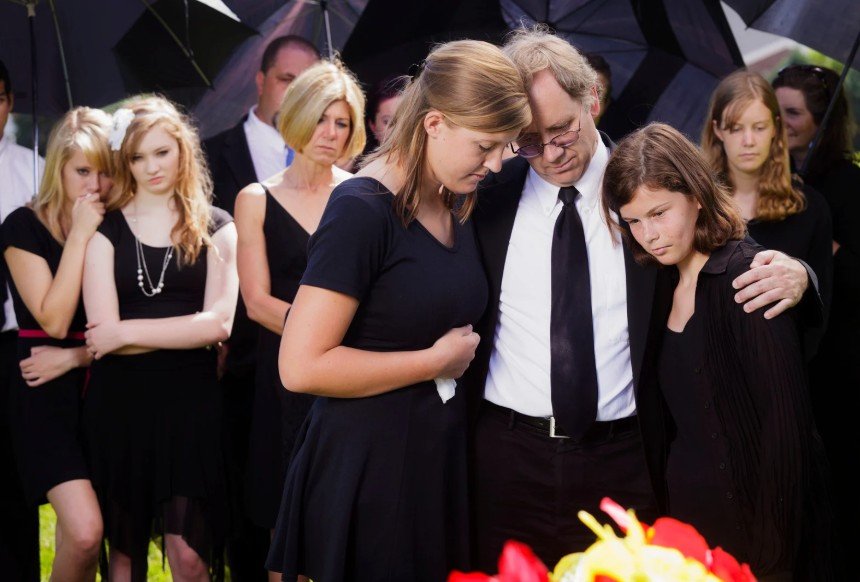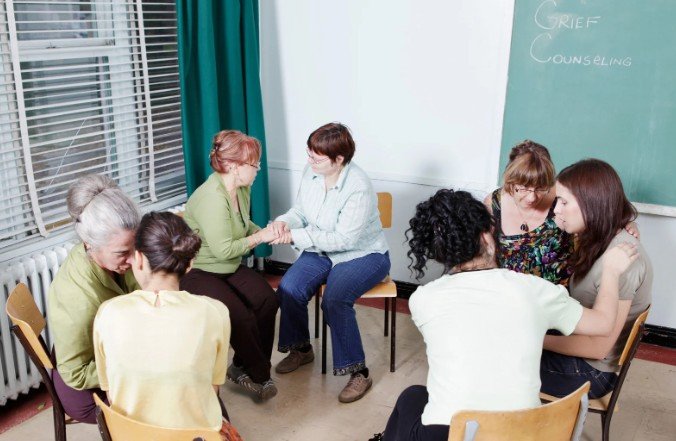What Is Grief? Understanding Loss, Emotionally and Physically
Grief is a profound emotional reaction to loss—often the death of someone you love—but it can also follow other major losses (such as the end of a relationship or loss of role). It’s a deeply personal process that affects your mind, body, and spirit. Many people deal with grief in their own way.
You may experience waves of sadness, anger, confusion, guilt, or even relief. Physically, grief can show up as fatigue, insomnia, changes in appetite, body aches, or difficulty concentrating. These reactions highlight how grief impacts your whole being.
Because grief is not a linear progression, it’s more helpful to think of it as shifting tides rather than fixed stages. Many theories (including the Kübler‑Ross model of denial, anger, bargaining, depression, acceptance) offer frameworks, but they don’t map neatly onto every person’s unique journey.
Different cultural customs, personality, the nature of your relationship, and personal resilience all influence how grief is expressed and healed.

Dealing With Grief : If you’re experiencing loss, online psychiatry services can be a lifeline for emotional support. Through East Coast telepsychiatry, patients can access therapeutic tools and expert guidance from the comfort of home. The flexibility of virtual mental health care means you don’t have to struggle alone. Our clinicians specialize in grief, trauma, and recovery, ensuring every patient receives thoughtful and personalized telehealth psychiatric treatment.
Healthy Coping Strategies for Grief and Loss
Below are evidence‑based, compassionate strategies for coping with grief. Use what resonates for you:
Journaling & Reflection
Writing your thoughts, letters to the deceased, or reflecting on memories can help you process emotions. It creates a private container for grief when talking out loud feels too hard.
Move Your Body
Physical activity (walking, yoga, stretching, gentle cardio) helps regulate mood and relieve stress. Exercise promotes the release of endorphins, which can help ease depressive symptoms and anxiety.
Creative & Expressive Channels
Art, music, poetry, gardening, crafting—these outlets allow emotional expression when words fail. You can channel your grief into something tangible that honors your loss.
Build or Lean Into Social Support
Connecting with trusted friends, family, or grief support groups helps reduce isolation. Sharing stories and feelings creates validation—that you’re not alone in your grief.
Allow Yourself to Feel
Suppressing or denying grief often prolongs emotional suffering. Permit yourself to feel genuine emotion—sadness, anger, longing—and recognize that healing doesn’t always feel “tidy.”
Practice Routines & Self‑Care
Simple acts like maintaining regular sleep, balanced meals, hygiene, time in nature, or small pleasurable routines can anchor you amid emotional turbulence. Self‑care is not indulgent—it’s healing.
Use the Dual-Process Approach
The dual process model of grief suggests healthy coping oscillates between confronting your loss (feeling sadness, remembering) and engaging in life (routine tasks, distractions). Alternating between loss‑oriented and restoration‑oriented activities helps balance grief and forward movement.

Our practice offers affordable virtual psychiatry services near me for individuals seeking support during life’s most difficult transitions. With a network of licensed online psychiatrists East Coast, we ensure continuity of care and expert treatment for grief, anxiety, depression, and more—all through secure, virtual sessions.
When to Seek Professional Support for Grief
Sometimes grief becomes overwhelming. If you find your grief:
Is interfering with daily functioning (work, relationships, self‑care)
Persists without relief over many months
Includes self-harm thoughts or suicidal ideation
Feels “stuck”—as though nothing helps
…then it’s wise to reach out for professional help.
Types of help to consider:
Individual therapy or grief counseling: A licensed therapist or psychiatrist can offer a safe, confidential space to express your pain and guide you toward meaning and resilience.
Group support / bereavement groups: Being in a room with people walking a similar path can reduce loneliness and create shared healing.
Online grief support / virtual therapy: Digital grief and bereavement resources have shown promise in reducing grief intensity and depressive symptoms.
Telepsychiatry or telehealth mental health care: If in‑person care is inaccessible, virtual psychiatric or counseling services can provide continuity, flexibility, and anonymity.
Seeing support doesn’t mean failure—it means choosing your well‑being.
Creating Meaningful Tributes & Lasting Connections
Honoring the memory of your loved one can help your healing journey. Here are ways to memorialize and stay connected:
Host a memorial service or gathering: Invite people to share stories, light candles, display photos, or participate in symbolic rituals.
Make charitable donations or establish a legacy: Support a cause or create a scholarship in their name. This continues their impact.
Establish personal rituals: Light a candle, plant a tree, keep a memory journal, create a photo album—small, repeated acts that keep the relationship alive.
Honor anniversaries consciously: Birthdays, holidays, and anniversaries may be difficult. Plan thoughtful rituals or remembrance acts ahead of time.
Share stories and memories: Talk about your loved one, record oral histories, or document lessons they taught you.
These acts help transform grief into ongoing connection, not just absence.
In Summary
Grief is a deeply personal and non‑linear journey. There is no “correct” way to grieve—only your way. By combining healthy coping strategies (journaling, self‑care, social support, creative outlets) with openness to professional support, you can gradually find meaning and resilience.
If your grief feels too heavy or unchanging, please reach out for help. Healing doesn’t have to happen alone.
If you’re struggling with loss and want compassionate support, contact us for a confidential telepsychiatry session or grief counseling via virtual mental health care. You don’t have to walk this path alone—help is here. Contact ECT today to get help now.
| Grief Area | Coping Strategy | Resource Suggestion |
|---|---|---|
| Emotional Regulation | Journaling, therapy, grief groups | Online psychiatry services, support groups |
| Physical Impact | Movement (walking, yoga), sleep hygiene | Virtual mental health care tips |
| Social Isolation | Connect with loved ones, share memories, seek professional help | East Coast Telepsychiatry sessions |
| Long-Term Healing | Memorial rituals, legacy donations, creative expression | Licensed online psychiatrists East Coast |
| When to Seek Help | Persistent sadness, loss of function, suicidal thoughts | Affordable virtual psychiatry services |
